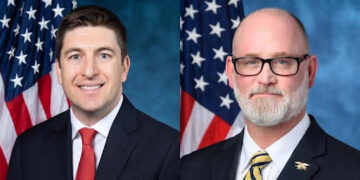In October, the Wisconsin legislature announced a new bill that would allow a system that could help identify risks and provide better treatment.
The Rick Johnson Parkinson’s Disease registry is intended to help public health officials better understand the causes and progression of the disease. State Senator Rachael Cabral-Guevara, the Parkinson’s Disease Alliance of Wisconsin, and other Wisconsin Legislators helped introduce the bill.
“We just don’t want to continue to guess. We want to have an opportunity where we can pull this data together. We can use the amazing minds here in Wisconsin, at our university, to analyze this, to process this, and to come up with a plan to address this for folks that are affected for this in the future,” State Sen. Rachael Cabral-Guevara, R-Appleton, said.
In a press release from the Cabral-Guevara office, Parkinson’s Disease is the fastest growing and the second most prevalent neurodegenerative disease. Affecting about 21,000 Wisconsin residents, Cabral-Guevara says the registry will help “track the prevalence and progression of the disease.” (RELATED: Wisconsin Moves Toward Digital Driver Licenses—But Privacy Critics Pump the Brakes)
The name comes from Rick Johnson, who lived in Fitchburg, Wisconsin. Johnson suffered from Parkinson’s and passed away in 2023. His wife, Stephanie Johnson, cared for Rick while he had the disease for 13 years. Three months after Rick passed, Stephanie was then diagnosed with Parkinson’s.
“We don’t have a systematic way of tracking the incidence and prevalence of Parkinson’s in Wisconsin,” Johnson said at the initial press conference. “We don’t have a Parkinson’s disease registry. So, my brain went to what does it take?”
“It will also allow us to look for environmental risk factors, potentially genetic risk factors, track clinical outcomes and more easily connect patients with those researchers, especially if patients are interested in participating in clinical research,” Dr. Brian Nagle, a professor who studies Parkinson’s added at the press conference.
The registry would be housed at the UW-Madison School of Medicine and Public Health, where it can collect critical information and other information about related diseases. (RELATED: Universities of Wisconsin Board Moves to Slash DEI Course Requirement)
































